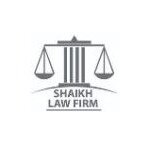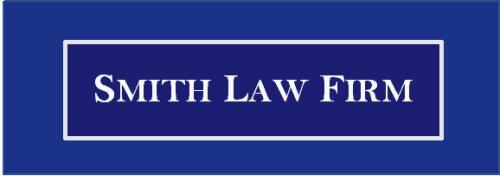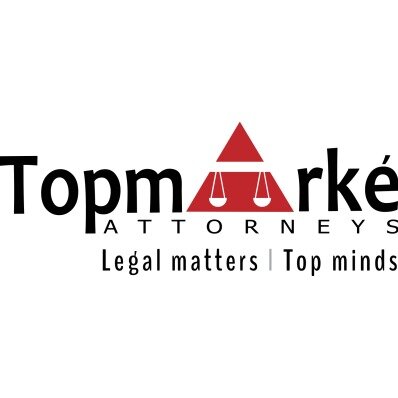Best Foreclosure Lawyers in Toronto
Share your needs with us, get contacted by law firms.
Free. Takes 2 min.
Free Guide to Hiring a Real Estate Lawyer
List of the best lawyers in Toronto, Canada
About Foreclosure Law in Toronto, Canada
Foreclosure is a legal process that allows lenders to recover the balance of a loan from a borrower who has stopped making payments. In Toronto, Canada, foreclosure laws are designed to manage the rights of both lenders and borrowers. The process typically begins when the borrower fails to make consecutive payments, prompting the lender to initiate legal proceedings to seize and sell the property to recover the owed debt. It's an intricate process that involves navigating provincial laws and regulations, specifically the Ontario Mortgages Act, which is the primary legislative framework governing foreclosures in Toronto.
Why You May Need a Lawyer
Obtaining legal advice is crucial when dealing with foreclosure due to its complexity and the potential financial implications. You may need a lawyer if:
- You are facing foreclosure and want to explore options to retain your home or understand your rights during the process.
- You need help negotiating with lenders or modifying loan terms.
- You wish to challenge the foreclosure in court due to mistakes or wrongful actions by the lender.
- You are considering declaring bankruptcy as a way to halt the foreclosure process.
- You want to attain a deeper understanding of your legal obligations and options, or receive assistance with paperwork and deadlines.
Local Laws Overview
Foreclosure in Toronto falls under the jurisdiction of Ontario's legal framework. Some important laws relevant to foreclosure include:
- The Ontario Mortgages Act: This act governs the procedures for foreclosure and the rights of both lenders and borrowers. It lays out rules for power of sale and judicial sale processes.
- Power of Sale: A less time-consuming process where the lender can sell the property without court intervention. However, the lender must provide notice and allow for any arrears to be paid by the borrower to stop the process.
- Judicial Sale: Involves court supervision where the lender must prove to the court that foreclosure is justified, potentially providing more protection to the borrower.
- Bankruptcy and Insolvency Act: This federal act can also play a role if the borrower files for bankruptcy, affecting foreclosure proceedings.
Frequently Asked Questions
What is the difference between Power of Sale and Foreclosure?
Power of Sale allows the lender to sell the property without taking ownership, whereas Foreclosure involves transferring property ownership to the lender, usually after a court process. Power of Sale is more common in Ontario due to its efficiency.
Can I stop the foreclosure process?
Yes, you can stop foreclosure by paying off arrears, negotiating with lenders for loan modifications, or filing for bankruptcy, which temporarily halts foreclosure proceedings.
How long does the foreclosure process take in Toronto?
The duration varies. Power of Sale can be completed in a few months, while Judicial Sale may take longer due to court involvement.
What happens if my home sells for less than I owe?
If a property's sale doesn't cover the mortgage balance, the lender may pursue a deficiency judgment to recover the difference.
Can foreclosure affect my credit score?
Yes, foreclosure negatively impacts your credit score and can remain on your credit report for up to seven years.
Is it possible to reinstate my mortgage after a foreclosure has started?
Yes, reinstating a mortgage involves paying overdue amounts, possibly including legal fees, before the sale occurs.
What are my options if I can't afford my mortgage payments?
Options include refinancing, negotiating a loan modification, selling your home, or consulting a financial advisor to explore alternatives.
How can a lawyer assist me during foreclosure?
A lawyer can provide legal guidance, help with negotiations, represent you in court, and ensure the lender follows appropriate legal procedures.
What are the lender's obligations during foreclosure?
The lender must provide notice, allow arrears repayment, and follow the procedures outlined in the Ontario Mortgages Act.
Can foreclosure proceedings be challenged in court?
Yes, borrowers can challenge proceedings if they believe the lender violated legal procedures or if there's a basis for disputing the debt or terms.
Additional Resources
For further assistance, consider reaching out to the following resources:
- Ontario Ministry of the Attorney General: Offers information on laws and your rights during foreclosure.
- Legal Aid Ontario: Provides legal services for those unable to afford a lawyer.
- The Law Society of Ontario: Can help find a qualified lawyer specializing in foreclosure.
- Court Services Division: Provides details on the judicial sale process if your case proceeds to court.
- Office of the Superintendent of Bankruptcy Canada: Offers guidance on bankruptcy and insolvency matters.
Next Steps
If you are facing foreclosure and need legal assistance, consider the following steps:
- Consult a Lawyer: Contact a lawyer who specializes in foreclosure for personalized legal advice.
- Understand Your Options: Discuss potential options like loan modification or short sale with your lawyer.
- Gather Documentation: Collect all relevant documents, such as mortgage statements and correspondence with your lender, to discuss with your lawyer.
- Explore Financial Counseling: Consider meeting with a financial counselor to examine your financial situation and plan accordingly.
- Contact Your Lender: Open a line of communication with your lender to negotiate possible solutions, with the guidance of your lawyer.
Lawzana helps you find the best lawyers and law firms in Toronto through a curated and pre-screened list of qualified legal professionals. Our platform offers rankings and detailed profiles of attorneys and law firms, allowing you to compare based on practice areas, including Foreclosure, experience, and client feedback.
Each profile includes a description of the firm's areas of practice, client reviews, team members and partners, year of establishment, spoken languages, office locations, contact information, social media presence, and any published articles or resources. Most firms on our platform speak English and are experienced in both local and international legal matters.
Get a quote from top-rated law firms in Toronto, Canada — quickly, securely, and without unnecessary hassle.
Disclaimer:
The information provided on this page is for general informational purposes only and does not constitute legal advice. While we strive to ensure the accuracy and relevance of the content, legal information may change over time, and interpretations of the law can vary. You should always consult with a qualified legal professional for advice specific to your situation.
We disclaim all liability for actions taken or not taken based on the content of this page. If you believe any information is incorrect or outdated, please contact us, and we will review and update it where appropriate.















